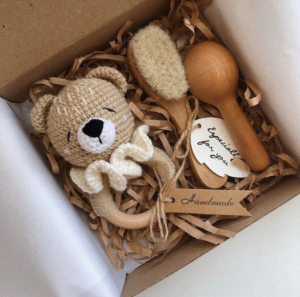As diverse as languages can be, they often have connections and similarities that allow speakers of one language to understand another to some extent. This is especially true for Cantonese and Mandarin, two of the most widely spoken Chinese dialects. In this blog post, we will explore the relationship between Cantonese and Mandarin, and delve into whether Cantonese speakers can understand Mandarin.
Introduction
Cantonese and Mandarin are both essential Chinese dialects, each with its own characteristics and regional influence. Cantonese is predominantly spoken in Guangdong province, Hong Kong, and Macau, while Mandarin is the official language of mainland China and Taiwan. Despite their differences, these two dialects share some similarities due to their historical and cultural connections.
The Evolution of Cantonese and Mandarin
Both Cantonese and Mandarin originate from Old Chinese, a language that dates back thousands of years. Over time, Old Chinese evolved into Middle Chinese, which eventually gave rise to modern Chinese dialects such as Cantonese and Mandarin.
Cantonese, with its rich history, developed independently from Mandarin, resulting in unique tonal variations, vocabulary, and grammar. Mandarin, on the other hand, has become the official and standardized version of Chinese, known for its simplified tonal system and influence in education and media.
Mutual Intelligibility
So, can Cantonese speakers understand Mandarin, and vice versa? While there are significant differences between the two dialects, mutual intelligibility exists to some extent. Due to the shared Chinese writing system, speakers of either dialect can often understand written Chinese characters, known as Hanzi, regardless of their spoken language.
In terms of spoken language, Cantonese speakers may find it easier to understand Mandarin than vice versa. The reason lies in the complexity of Cantonese, which features nine distinct tones compared to Mandarin’s four. Cantonese speakers have been exposed to Mandarin through education, media, and interactions with Mandarin speakers, granting them some comprehension of the dialect.
Additionally, Mandarin has become the lingua franca of China, leading to its widespread use and exposure among Cantonese speakers. On the other hand, Mandarin speakers are less likely to understand Cantonese due to its intricate tonal system and variations in vocabulary and grammar.
Factors Affecting Mutual Comprehension
While there is a level of mutual intelligibility between Cantonese and Mandarin, several factors can influence the extent to which speakers of one dialect understand the other. These factors include:
- Exposure: The more exposure one has to the other dialect, the better their understanding. Cantonese speakers who frequently engage with Mandarin speakers or consume Mandarin media are likely to have a better grasp of the dialect.
- Proficiency: Proficiency in one’s own dialect plays a crucial role in understanding the other. Cantonese speakers with a strong command of their native dialect will find it easier to distinguish Mandarin sounds and words.
- Context: The context in which the conversation takes place influences comprehension. Formal conversations, where standard Mandarin is spoken, are generally easier to understand, while informal or regional dialects may pose more challenges.
- Age: Younger generations tend to have more exposure to Mandarin education and media, leading to better understanding. Older generations may struggle more due to limited exposure or lack of formal education in Mandarin.
- Cultural and Linguistic Background: The cultural and linguistic background of an individual can also impact their ability to understand the other dialect. Factors such as prior knowledge of related languages or exposure to different languages can contribute to comprehension.
Conclusion
In conclusion, while Cantonese and Mandarin are distinct Chinese dialects with differences in tonality, vocabulary, and grammar, there is a level of mutual intelligibility between the two. Cantonese speakers generally have a better understanding of Mandarin due to exposure and shared written characters. However, the extent of comprehension varies among individuals and depends on factors such as exposure, proficiency, context, age, and cultural background.
As language is dynamic and continually evolving, the connection between Cantonese and Mandarin continues to grow. Language learners and enthusiasts can enjoy exploring the fascinating interplay between these two dialects, allowing for deeper connections and cultural understanding within the Chinese-speaking community.
FAQs
-
Are Cantonese and Mandarin completely different languages?
No, Cantonese and Mandarin are not considered completely different languages but rather dialects of Chinese. They share a common written system and have some mutual intelligibility. -
Can Mandarin speakers understand Cantonese?
Mandarin speakers may find it more challenging to understand Cantonese due to its complex tonal system and variations in vocabulary and grammar. -
Is Cantonese or Mandarin more widely spoken?
Mandarin is more widely spoken due to its status as the official language of mainland China and Taiwan. Cantonese is mainly spoken in Guangdong, Hong Kong, and Macau. -
Do all Cantonese speakers understand Mandarin?
While many Cantonese speakers have some level of understanding of Mandarin, it may vary depending on factors such as exposure, proficiency, and context. -
Do Cantonese and Mandarin share the same written characters?
Yes, Cantonese and Mandarin both use the same written characters, known as Hanzi. This allows for mutual comprehension when reading written Chinese.



